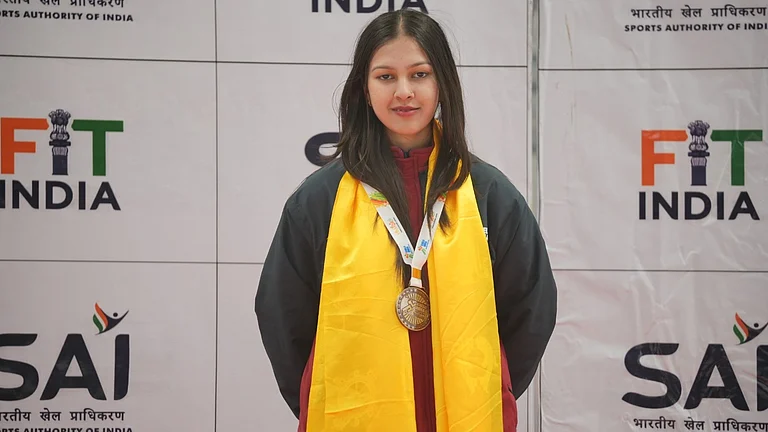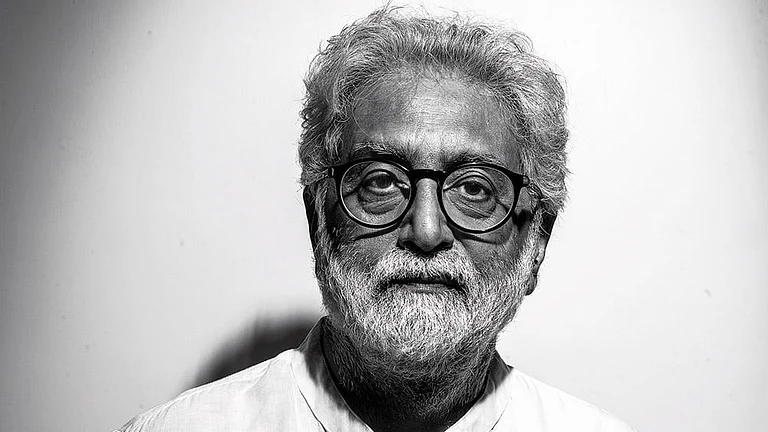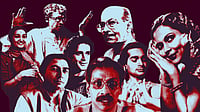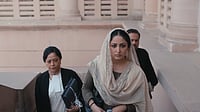The orange skies were furiously turning violet on a sultry evening. We were taking a tired stroll on the JNU roads after a long day of campaigning for the Students’ Union elections, when the phone call came. “Gauri Lankesh has been shot,” Umar Khalid told us softly. I froze. Soon, I ran to a washroom to calm myself as I was shaking. We pretended to continue with our work thereafter; no one spoke much that night.
It was not until I watched Gauri that I realised how vivid the evening of September 5, 2017 still was in my mind. Directed by Kavitha Lankesh, Gauri is a semi-autobiographical documentary that delves into the reportages, which led to the firebrand journalist’s assassination seven years ago. In 2023, it won the Best Long Form Documentary award at the South Asian Film Festival of Montreal.
Gauri is both deeply personal and starkly political. Lankesh, a prominent Kannada filmmaker, narrates the story of her elder sister not just through her memories, but also through the issues that Gauri advocated. Accounts from Gauri’s co-workers at Lankesh Patrike—a vernacular weekly— fellow human rights activists and journalists are interwoven with those whom she reported on. Step by step, the story unveils the many reasons why Gauri attracted the ire of the right wing regime, even before they assumed power at the Centre in 2014. The narrative is strung together from reporting footages and “behind-the-scenes” videos. The hand-held camera and gritty video quality make these sequences visually dynamic, communicating the zeal with which Gauri embarked on her expeditions.
The oscillations between who Gauri was and how she was perceived adds a dramatic tension to the film. In one sequence, the Shri Ram Sene President proclaims that Gauri would have been stripped naked and paraded had the police handed her to them. The speech is received with loud cheering and hooting by the crowd. It is followed by a clip of Gauri in Chikkamagaluru jail, where she states how those who speak for communal harmony are arrested, while those who spread hatred are given free rein. Such juxtapositions intrigue the viewer about the extraordinary journey that Gauri undertook as a journalist and an activist.
As the film explores the various episodes of Gauri’s reporting, intervening slides on “Gauri Lankesh’s Editorial” are introduced—excerpts from her writings on these issues in Lankesh Patrike. In a story about a deceased journalist, these slides serve as a spectral reminder: of a voice lingering beyond death. Through these writings, Gauri is present even in her absence.
Gauri offers visual and emotional relief gently, even as the journalist clashes with the government. Home videos of Gauri with Kavitha’s family, especially her daughter Esha, provide a moving glimpse into her personal life. Esha’s interview about her relationship with her avva humanise the activist-journalist. Her close colleagues also reveal how she struggled to run Lankesh Patrike without any advertisements, staying true to her father’s principles. Such nuggets foreground Gauri’s vulnerabilities and offer a poignant contrast to her image as a relentless crusader.
Significantly, Gauri doesn’t just end on a note of adulation. Through powerful editing, Kavitha shows the aftermath of the journalist’s assassination. This also includes insights into its investigation, which led to revelations about the murders of three other rationalists and dissenting voices killed before Gauri. The film’s soundtrack complements its editing at various junctures, especially in these sequences.
Gauri moves beyond Gauri’s cause. It explores all the crucial protests and movements in the country, even after her death. These visuals assert why Gauri’s dissent threatened the right wing ecosystem. Evidently, she had the power and will to make diverse human rights movement converge on a single platform. As Kavitha says in the voice over, “I am sure Gauri would have loved to be there. She would have been on the streets...writing, reporting, investigating furiously...seeing hope where many of us would probably only see despair.”




























